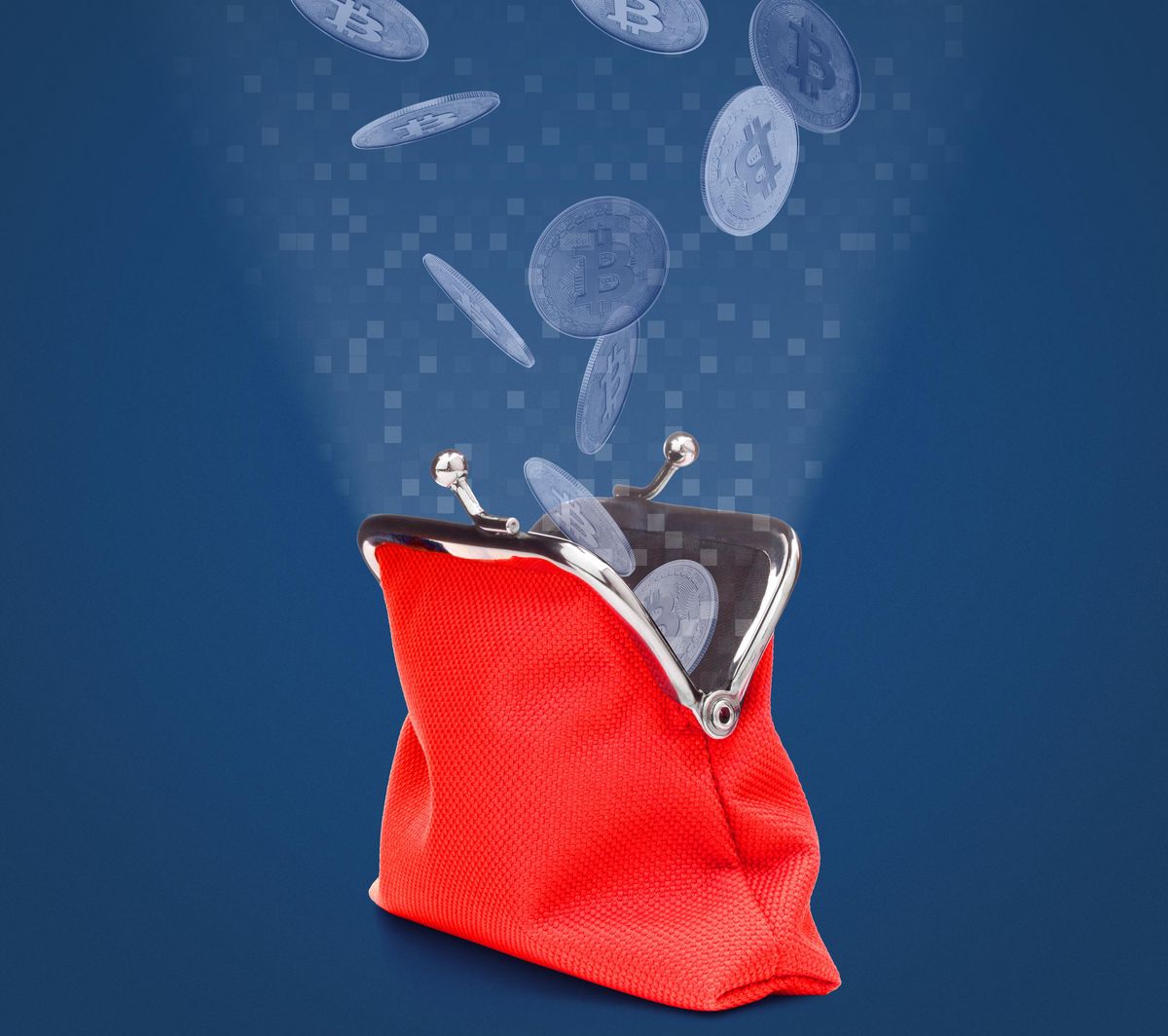A Bitcoin Wallet for the Masses
Square simplified credit-card transactions. Now it wants to build cryptocurrency hardware

A wallet to hold bitcoins—or other cryptocurrencies—is not at all a new idea. Basically a souped-up flash drive, these gadgets hold a private key, protected by a pin or passcode, that allows a user to securely access cryptocurrency data; the data itself lives in the blockchain. Some of these “wallets” have their own displays, some require use with a computer or phone.
Most wallets support a variety of cryptocurrencies—indeed, they are targeted at people who trade in multiple currencies and manage multiple keys. They make doing so a little easier, but they don’t make cryptocurrencies useful for the rest of us.
Enter Square, the company that developed a little white dongle for smartphones that lets anyone easily accept credit-card payments.
“We’re making a hardware wallet for the next 100M bitcoin users,” the company wrote in a recent recruitment posting. “Our goal is economic empowerment, starting with bringing easy-to-use, reliable self-custody to a global audience.”
Square first unveiled its hardware wallet plans in a series of tweets in June, the first coming from Square CEO Jack Dorsey. “Square is considering making a hardware wallet for bitcoin. If we do it, we would build it entirely in the open, from software to hardware design, and in collaboration with the community,” he said in the tweet. (The company declined to comment further for this article.)
Since then, Square has listed jobs for the project on multiple recruitment sites; the company has been on the hunt for project managers, engineers, supply chain managers, software developers, security experts, and other professionals to work on the wallet. And in December, the company changed its corporate name to “Block.”
This isn’t Square’s—Block’s—first foray into cryptocurrency. In late 2018, the company expanded its mobile payments platform, Cash App, to include the ability to buy and sell bitcoins, as well as to send them to other Cash App users. Square initially charged a fee for these transactions, but it recently dropped the fee and now makes a profit by acting as its own exchange, with slightly different pricing for buy and sell transactions.
An app is not a hardware wallet, however. Apps leave users’ private keys in the cloud—and there have been a number of incidents in which hackers managed to get into such online cryptocurrency accounts. Storing private keys offline, in a hardware wallet, significantly increases security but raises complexity for the user. Square CEO Dorsey indicated that Square’s hardware wallet will use what he calls “assisted self-custody” to have the best of both worlds, security and simplicity.
Dorsey has been an unabashed fan of Bitcoin since its earliest days. “Bitcoin changes absolutely everything,” he told attendees of the Bitcoin 2021 Conference. “I don’t think there is anything more important in my lifetime to work on.”
He is all-in on bitcoins versus other cryptocurrency, because, he tweeted in 2019, “Bitcoin is resilient. Bitcoin is principled. Bitcoin is native to internet ideals.”
So unlike existing hardware wallets like the Ledger Nano X, the Trezor Model T, and the KeepKey, Square’s wallet won’t support multiple cryptocurrencies, only bitcoins. Dorsey wants Bitcoin to become the standard cryptocurrency, leaving Tether, Ethereum, Binance, Ripple, and dozens of other popular alternatives in the dust. His hardware-wallet move just might be the accelerant Bitcoin needs to do that.
When will all this happen? Look for this crypto gadget in the second half of the year, says Dan Dolev, managing director and senior analyst for fintech equity research at Mizuho, a global banking and financial services company.
And it won’t just be another memory stick, says Dolev. He likened Square’s announcement to Apple’s entry into the smartphone market. “Before the iPhone’s introduction in 2007, there were a bunch of smartphones out there that connected to the Internet, like the Palm Pilot and the Blackberry. And they worked fine. But there wasn’t a sense of an ecosystem. Same thing with hardware wallets.”
With Square’s involvement, he says, “we know it’s not just going to be a key that stores bitcoin passwords; it’s going to be something people can use for more. Maybe it will be like a debit card, maybe something else. Square’s end goal is to create a global network of decentralized finance on top of the Bitcoin blockchain.”
It isn’t going to be easy. People will want it to purchase things in the real world, not just to buy, sell, and hold cryptocurrencies. As it was with the development of near-field-communication (NFC) payments, the hardware is not the problem. Rather, Dolev says, the challenge will involve working with merchants to accept the currency and figuring out how to bring down transaction costs.
And while nobody knows exactly what this gadget will look like, its basic shape will probably be a square, of course. Or, says Dolev, “even more likely, a block.”
“I wouldn’t underestimate Square’s ability to succeed here,” he says. “Everything they’ve touched, historically, has turned into gold.”
- The Ridiculous Amount of Energy It Takes to Run Bitcoin - IEEE ... ›
- Facebook Steps Toward Cryptocurrencies - IEEE Spectrum ›
- Bitcoiners Destroy Their iPhones After Apple Removes Wallet From ... ›
- GeeRemit App Moves Money and Saves It Too - IEEE Spectrum ›


